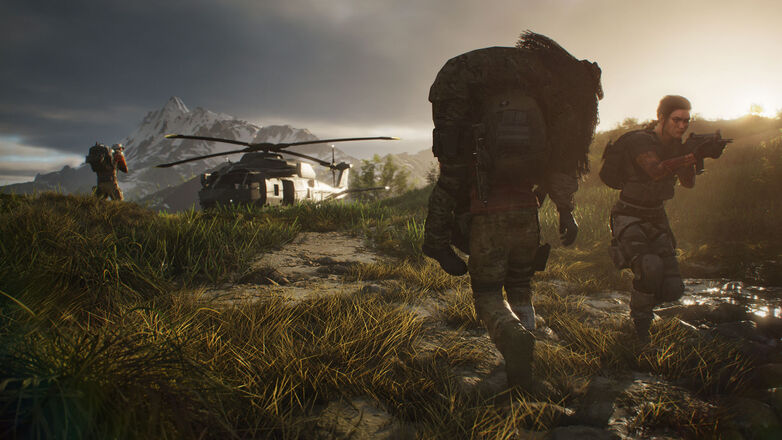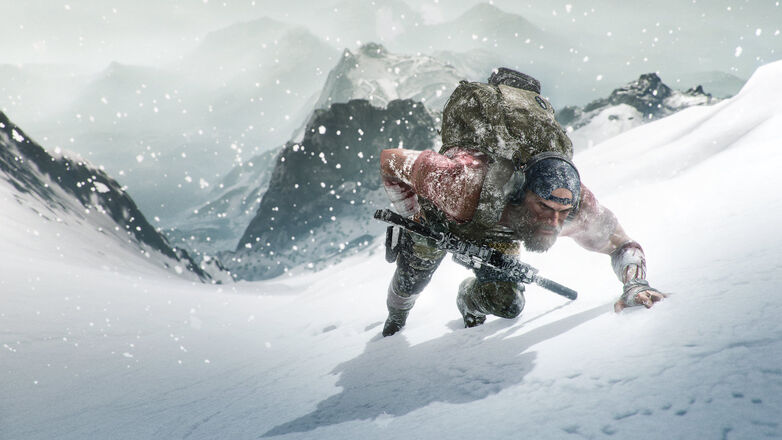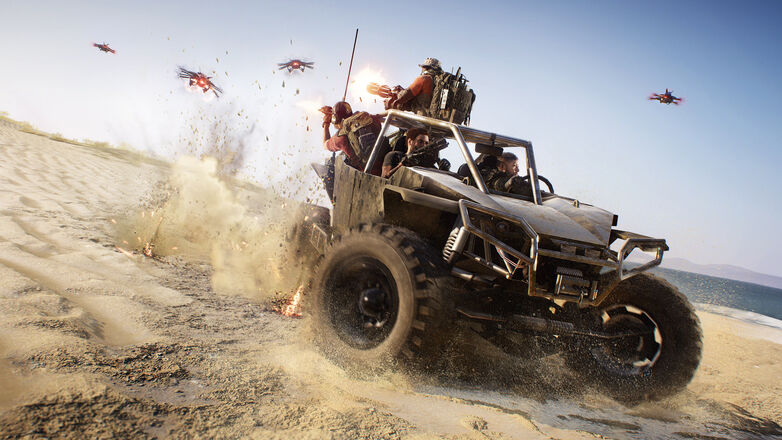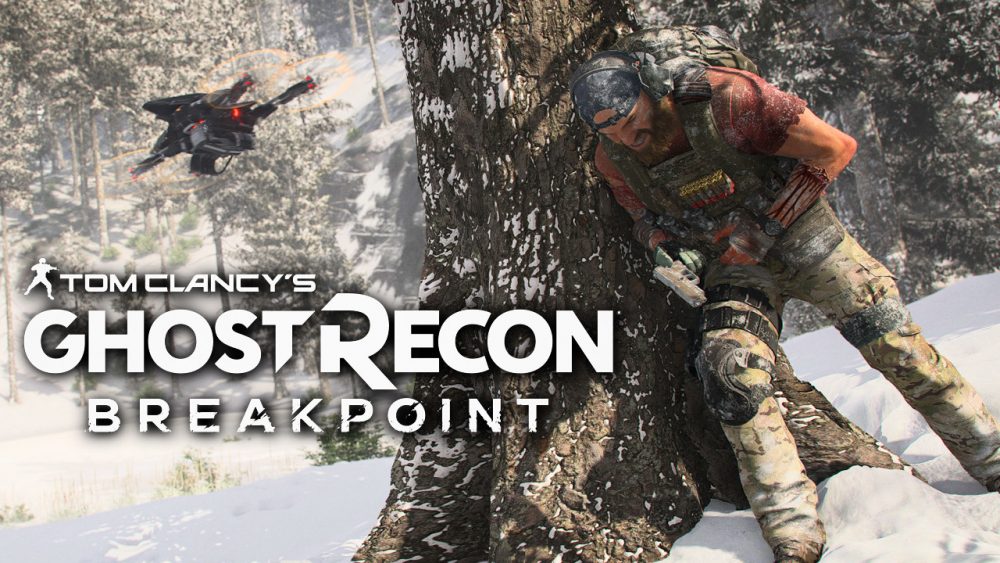“Ghost Recon Breakpoint notably does its best to follow up Wildlands, but it falls just short of living up to its predecessor.”
Ghost Recon evolved for the better with the release of Wildlands just a few years ago. Expanding the tactical shooter into an open world setting with squad-based missions and the freedom to complete them using any strategy you see fit was a very wise move for the franchise. It seems only logical, then, that this critical and popular success should be followed up by an equally vast and ambitious sequel. Enter Breakpoint.
Ghost Recon Breakpoint is Ubisoft’s answer to an open world, tactics-heavy, squad-based shooter for gamers who like the look of, but not the spongey enemies of, The Division. Perhaps that is a little unfair, as there are more distinctions between the two games than just this. That being said, the story-heavy immersion of the latter is very evident in the former; as are the influences of several other popular Ubisoft titles. It was clear from playing the closed beta of Breakpoint alone that the game’s mechanics displayed a perhaps-accidental showcase of some of the company’s best-loved ideas. Drone-based elements worthy of Watchdogs; tactical approaches akin to those of Assassin’s Creed; the list could easily go on. Graciously, the payoff from drawing on this wealth of experience is evident in Breakpoint from the word go.

Breakpoint opens with all-out action and high-stakes. As the Ghosts approach the borders of the technologically-enhanced and corporate-controlled island of Auroa, their small fleet of choppers is taken down by a sudden and mysterious attack. As Nomad, leader of the Ghosts, your immediate task is to locate your team in the hope of finding survivors, whilst avoiding the now clear and present danger which awaits you on Auroa. It becomes swiftly apparent that stealth plays a huge part in Breakpoint. Whilst in Wildlands you were largely doing the hunting, in Breakpoint you are very much the hunted. Tactics are more crucial than ever, as your main foes, The Wolves, outgun and often outmatch you. They have advanced technology at their disposal and total control over the island territories. With the support of new allies, island civilians hiding away in the mountains of the island, your mission in Breakpoint is simple; tip the balance, liberate the island and save as many of your team as you can. Unfortunately for you, your greatest foe was formally one of your own. Walker is aware of your tactics and capabilities, and he will not hesitate to expose them, and kill you…
Breakpoint certainly feels like a harder game than its predecessor from the off. The challenge and therefore the need for a tactical approach are evident throughout, yet somehow the game feels more generic. The fact that you are never in control of the battleground in Breakpoint leads you to quickly identify workarounds, rather than expressly utilising a tactical approach. In one mission, for example, I found it more fruitful to lure all of the enemies in the area into a corridor and pick them off as they arrived than to hide, headshot, rinse and repeat. The latter, I found, can mean it takes a LONG time to get things done; sometimes even hours just to clear and single area. More frustratingly still, the area will re-populate if you leave the game and return to it later. This caused me problems a couple of times when the game decided to crash on me; but even worse is the fact that, when re-launching, you may find yourself spawned in a high-difficulty area. Opening the game and immediately running for my life through a zone far, FAR above my pay grade was not the warmest welcome; let alone where I had actually hidden myself when I had quit.

Despite all of these less-than-ideal elements, though, the game adds a lot into the mix to freshen up the model and allow you to play your way. The game’s heavily updated progression system is what helps push the ownership element of your experience. Skills can be learned and enhanced through your actions in the game, as you would expect. The new specialism system, however, helps you to push and punch-up your preferred playstyle; as well as diversifying your squad. Choosing a pathway from Assault, Sharpshooter, Panther or Engineer, every core style of play is catered to. Assault is the all-rounder, specialising in direct assaults and benefiting from additional health for the trouble. Sharpshooter, naturally, is aimed at snipers and offers steady aiming at range. Panther is the stealth option, getting you in and out of altercations subtlety and swiftly. An engineer gives you a rocket launcher, so not so subtle but (maybe) more fun? For my time in the game, I took on the Sharpshooter position and found that my class lightly but effectively supported the way I wanted to play. The benefits were noticeable, but certainly didn’t make the missions any easier, with the requirement for careful tactics still taking the forefront.
The enemy in Breakpoint is vicious and frightening, too. They will communicate, engage, trap and eliminate threats with incredible effectiveness; to the point that it is genuinely intense to move around the island. Additionally, the game’s new injury system means that one shot can be critical to your survival, or theirs. Taking on wounds and injuries will slow you down, reduce your abilities and can eventually leave you dead. You will have to make quick choices in a multiplayer scenario as to whether you heal a friendly or thrown them over your shoulder to make a swift escape. The intensity of this world and its dangers cannot be overstated. It is incredibly immersive and frequently threatening. This immersion is certainly one of the game’s strong points. Add to this the outstanding gunplay and wide array of gadgets and traps which you can choose to utilise at your leisure, and you have on your hands a game which rewards thinking far more than it does simply running and gunning.

Further upgrades and additions to Breakpoint upon its predecessor include an enhanced and refined gunsmith, offering even greater weapon customisation, an in-game social hub and a new currency and equipment system which allows you to make your Nomad experience unique. The social hub is integrated intelligently into the game’s story, taking the form of a hideaway in the mountains set up by locals who have been driven away from the Wolves’ insurgency. Some of the game’s richest story and characters can be found here, too, giving the location purpose for solo players and as part of the wider game no matter how you prefer to play. You can also buy equipment here to boost your character, and rest using your Bivouac, which allows you to gain a range of buffs and set up your loadout before heading back out into the wider world. Despite some setbacks, it certainly feels as though every element has been thought about carefully in order to give players everything they need in Breakpoint; be they playing solo or as part of a squad.
Ghost Recon Breakpoint notably does its best to follow up Wildlands, but it falls just short of living up to its predecessor. The setting, though immersive, is not nearly as spectacular as the first game’s. The gameplay is solid, but workarounds often solve problems more efficiently than the intended systems do. Throw in a few bugs in terms of reloading the game and there is just too much meh to outweigh the wow this time around. On the flip side, though, the story of the game has its merits, as do some of the new systems. The mechanics of the game are also commendable, even if many of them rarely get used. There is a lot to love in Breakpoint, and it did indeed hold my attention for many hours of play. It’s no Wildlands, but it isn’t half bad either.
- Developers: Ubisoft, Ubisoft Paris
- Platforms: PlayStation 4, Xbox One, Google Stadia, Microsoft Windows
Enjoy the review? want to read more of our reviews? then click right here to be whisked away to the realm of our opinions.








You must be logged in to post a comment.